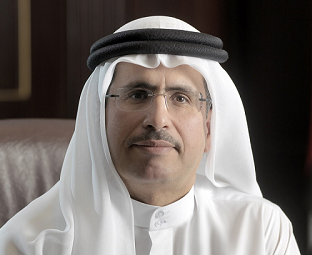Solar Energy – the key to tackle climate change and meeting increasing energy demands

The increasing issue of climate change has become a threat to all creatures, the environment, and biodiversity on Earth. This has become a challenge in that the world must unite to overcome. The challenges faced by the modern-day world is but a fraction of what we can expect to face in the future, if we do not react quickly and work to mitigate the effects of climate change. Using fossil fuels to generate power has become one of the main causes of greenhouse gas emissions, reducing our dependence on fossil fuels is one of the most important steps towards addressing climate change, by using alternative solutions like renewable energy, solar power, wind power, hydropower, geothermal energy and tidal power, while rationalising consumption and enhancing energy efficiency. Increasing our dependence on renewable energy sources in the energy sector may be necessary, through there is also an urgent need to increase the share of renewable energy in sectors such as transport, heating, cooling and other vital sectors. Modern governments need to address the challenges posed by climate change, to meet the increasing demand for energy. This will have an adverse effect on our environment, and on our natural resources which are considered an important assed for future generations. Governments must establish policies, laws and legislations to preserve renewable energy, while making larger investments in the field of renewable energy. Global investments in renewable energy are expected to reach USD 7.8 trillion by 2040, according to the latest Bloomberg Energy Finance Report. The international community is aware of the importance of promoting renewable energy, establishing clean energy solutions, reducing carbon emissions, supporting growth GDP, and providing more jobs in the renewable energy sector. The renewable energy sector is expected to provide over 24 million jobs by 2030.
Solar energy is one of the most efficient forms of clean energy. Studies have shown that the amount of solar energy that reaches the Earth’s surface is enough meet the world’s energy needs 3,000 times over. Each square metre of the Earth is exposed to average of 1,700 kilowatts (kW) of solar energy on yearly basis. Solar energy is the most common source of clean energy in the UAE, due to the UAE’s positioning on the solar belt. Each square metre of Dubai is exposed to an average of 2,150 kW of solar energy annually. Due to this, Dubai has realised the importance of harnessing solar energy. The total production capacity of power converted from solar energy is 301 gigawatts (GW), and this rose by 33% in 2016. This figure is expected to increase to 983GW by 2030, over 10% of the world’s expected capacity.
Photovoltaic technology contributed to 295GW in 2016, and is expected to increase to 949GW in 2030. Concentrated Solar Power (CSP) contributed to 5GW in 2016, and is expected to increase to 34GW in 2030. The total combined production capacity of solar projects in the region, equates to about 5,360MW, of which 4,050MW was harnessed through the use of photovoltaic panels. 1,310MW of energy was harnessed through CSP. The UAE has prepared itself to bid farewell to the last drop of oil by investing in solar projects to reduce energy consumption and preserve natural resources. The UAE’s interest in producing renewable energy, has led to a decline in the global cost of energy tenders in solar power and wind energy. Europe and other parts of the Middle East have also witnessed a decrease in the cost to produce thermal energy using coal, according to a study published by the Japanese Economic Corporation.
DEWA set a world record by obtaining the lowest price globally for the second phase, at USD 5.6 cents per kilowatt hour (kW/h). DEWA set another world record with the lowest recorded bid being USD 2.99 cents per kW/h for the 800MW third phase of the park, highlighting a promising future for clean energy in the UAE. This supports our efforts to achieve the Dubai Clean Energy Strategy 2050, launched by HH Sheikh Mohammed bin Rashid Al Maktoum, to transform Dubai into a global hub for clean energy and green economy. The strategy sets the ambitious target of generating 5,000MW of solar power by 2030, comprising 25% of Dubai’s total power output.
Clean energy will generate 7% of Dubai’s total power output by 2020, 25% by 2030, and 75% by 2050. This also reflects our efforts to achieve the Carbon Abatement Strategy, to reduce carbon emissions by 16% by 2021. DEWA has launched a number of major projects and initiatives on renewable energy, to drive the sustainable development of the Emirate. This includes the Mohammed bin Rashid Al Maktoum Solar Park, which reflects the UAE’s efforts to ensure sustainable development, and its recognition of the importance of renewable energy to ensure a clean, healthy and safe environment.
The Mohammed bin Rashid Al Maktoum Solar Park is the largest single-site solar park in the world, with a planned capacity of 1,000 MW by 2020 and 5,000 MW by 2030, with a total investment of AED 50 billion. It will eventually save approximately 6.5 million tonnes per annum in emissions. The first phase of the solar park was launched in 2012 with a production capacity of 13MW, it became operational in October 2013. The 200MW second phase of the solar park, based on the IPP model, became operational in March 2017. It is the first and largest project of its kind to be implemented according to the IPP model. The 800MW third phase of the solar park will become operational in 2020. DEWA is building the largest CSP project in the world, based on the IPP model. The 200MW first phase of the CSP plant will be operational by April 2021, and will generate 1,000 megawatts using this technology by 2030.
DEWA launched three smart initiatives to support the Smart Dubai initiative, launched by HH Sheikh Mohammed bin Rashid Al Maktoum to transform Dubai into the Smartest and Happiest city in the world. DEWA’s initiatives include connecting solar energy to houses and buildings through the Shams Dubai initiative, home and building owners will connect their solar energy systems and export any surplus energy back into DEWA’s grid, smart applications through smart meters and grids, and building the infrastructure for electric vehicle charging stations through the Green Charger initiative. The UAE’s wise leadership is committed to achieving sustainability, and ensuring the country’s transformation into a green economy. This is considered a priority in all national strategies.
The UAE Vision 2021 aims to ensure a sustainable environment, while the Dubai Plan 2021 will transform Dubai into a sustainable city with environmental elements that are clean, healthy and sustainable. We strive to achieve the vision of the wise leadership to ensure a brighter and more sustainable future. We make every effort to support international efforts to address the increasing issue of climate change, while meeting growing demands for energy, and mitigating the effect of climate change on the environment and on our natural resources.

